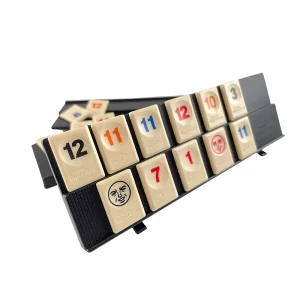An Effective Gambling Intervention

OLYMPUS DIGITAL CAMERA
An Effective Gambling Intervention aims to get your loved one to take action by presenting them with facts about problem gambling. It involves conducting research and coming up with a sensible plan of action. Once you have determined the right course of action, the next step is to discuss with your loved one the consequences of not following that plan. It is also important to have a plan of action in case your loved one refuses to follow your recommendations.

In the literature, the most effective approach appears to be on-screen pop-up messages. These messages should be endorsed by government and medical agencies. Industry supply-reduction initiatives have been backed by little evidence, and there is limited support for such measures. There are 12 reviews that examined the types of therapeutic interventions, including cognitive and behavioural therapies, motivational interviewing, general, brief, and internet-based treatments. While on-screen pop-up messages appear to be the most promising approach, many of these studies focused on single treatments.
Pathological gamblers identify gambling as a destructive agent. Addiction and pathology go hand in hand. It’s common for addicted individuals to ask for help in overcoming their addiction. The first step in effective gambling intervention is identifying a turning point. This is a key moment, where the costs outweigh the benefits. The patient may undergo periods of abstinence, followed by relapse. But once the person realizes that the cost of gambling is significantly greater than the benefits, they begin to seek help from a professional.
There are many types of effective interventions available. Motivational interviewing, for example, is a highly effective self-help method. In one study, people with gambling addiction who were enrolled in guided self-help programs reported a significantly reduced frequency of gambling per month. This reduction was significant at six and nine months, but was not statistically significant in terms of gambling expenditure. This suggests that motivational interviewing may be an effective way to treat the addictive behavior of gambling.
Neurobiological studies have indicated that drugs such as opioid antagonists can reduce the harm associated with pathological gambling. These medications target the neurotransmitter systems that control motivation, reward, and impulsivity. The drugs are often prescribed for other comorbid conditions, such as depression. However, the effectiveness of such drugs cannot be proven conclusively. Therefore, the next step is to test these medications to determine whether they reduce the problem.
Once the program is in place, the Interventionist coordinates with the entire family, including important members, to select the most effective gambling addiction treatment. The goal of the intervention is to get the Person of Concern into treatment as quickly as possible – within six months, if not sooner. A Certified ARISE(r) Interventionist will then help the family choose the right treatment facility. This approach is a more successful way to help your loved one get the treatment they need without the stress of losing everything they’ve worked for.
The first step in an effective Gambling Intervention is to find out what triggers the person’s excessive gambling. The most important thing is to encourage them to seek professional help. If you cannot find help in the process, consider calling a Gambling Help Line. The gambling help line can provide resources and referrals. And it is a great place to start a conversation with a loved one about their gambling problem. The sooner you can find help, the sooner the loved one will start enjoying life more.







